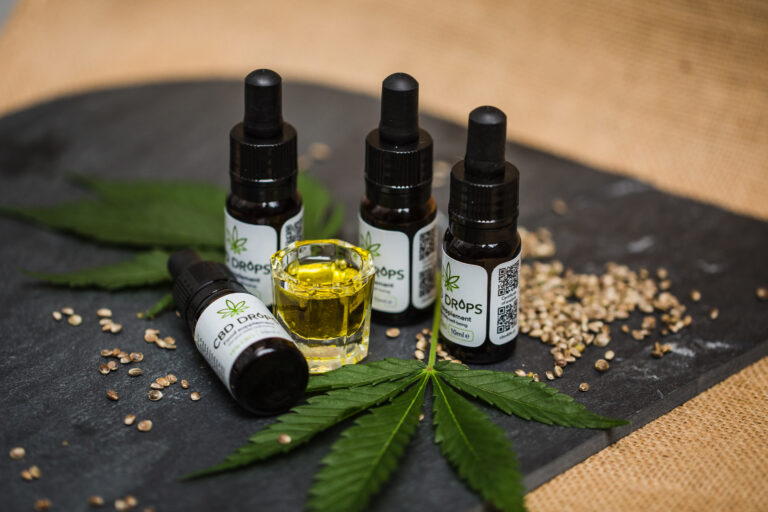Cannabidiol, commonly known as CBD, has surged in popularity over recent years, especially for its potential therapeutic effects on various health conditions. As research continues to expand, one area of significant interest is CBD’s impact on mental health disorders. This post explores what CBD is, how it interacts with the brain, and its potential benefits and limitations in treating mental health issues.
What is CBD?
CBD is a compound derived from the hemp plant, distinct from tetrahydrocannabinol (THC), the psychoactive component responsible for the “high” associated with hemp use. Unlike THC, CBD does not produce a euphoric effect but has been found to interact with the body’s endocannabinoid system (ECS). The ECS plays a crucial role in regulating various physiological processes, including mood, pain sensation, and stress responses.
How Does CBD Work?
CBD interacts with the ECS primarily through its influence on the serotonin system. Serotonin is a neurotransmitter involved in regulating mood, anxiety, and happiness. Studies suggest that CBD may enhance serotonin receptor activity, thereby potentially alleviating symptoms associated with anxiety and depression.
Moreover, CBD also impacts other neurotransmitter systems, such as the vanilloid receptors and GABA (gamma-aminobutyric acid) receptors. This multifaceted approach may contribute to its calming effects and its potential to improve sleep and reduce stress.
Potential Benefits of CBD for Mental Health
- Anxiety DisordersAnxiety disorders are among the most common mental health issues worldwide. Traditional treatments include psychotherapy and medications, such as selective serotonin reuptake inhibitors (SSRIs). However, some individuals experience side effects or insufficient relief from these treatments.Preliminary research suggests that CBD might offer an alternative or complementary treatment. In animal studies, CBD has demonstrated anxiolytic (anxiety-reducing) properties. Human studies are more limited but promising. For instance, a 2019 review of clinical trials found that CBD could reduce anxiety in individuals with social anxiety disorder and post-traumatic stress disorder (PTSD). While more research is needed, the evidence so far indicates that CBD may help manage anxiety symptoms with fewer side effects compared to traditional medications.
- DepressionDepression affects millions globally, and while conventional treatments can be effective, they do not work for everyone and can come with unwanted side effects. CBD’s impact on serotonin levels and its ability to modulate various neurotransmitter systems suggest it could offer benefits for those with depression.A study published in 2020 found that CBD had antidepressant-like effects in animal models, potentially due to its interaction with the ECS. Although human studies are still in the early stages, some clinical trials have reported improvements in depressive symptoms with CBD use. For instance, a small-scale study found that CBD might have a fast-acting antidepressant effect, which is particularly promising for individuals who need rapid relief.
- Insomnia and Sleep DisordersSleep disturbances are often linked to mental health issues such as anxiety and depression. Research indicates that CBD may help improve sleep quality and duration. A 2019 study found that CBD significantly reduced sleep disturbances in individuals with anxiety and chronic pain.The potential mechanisms behind this include CBD’s ability to interact with receptors involved in regulating sleep and its anxiolytic properties. By reducing anxiety and promoting relaxation, CBD might indirectly contribute to better sleep.
- PTSD and TraumaPTSD is a complex disorder triggered by traumatic events, characterized by symptoms such as flashbacks, nightmares, and severe anxiety. CBD’s potential benefits for PTSD stem from its effects on anxiety and its ability to influence memory processing.Animal studies suggest that CBD may help in reducing the intensity of traumatic memories and associated anxiety. Although human studies are still limited, preliminary findings indicate that CBD might aid in managing PTSD symptoms. For example, some clinical trials have shown improvements in PTSD symptoms, including reductions in nightmares and anxiety.

Limitations and Considerations
Despite the promising potential of CBD, several limitations and considerations should be addressed:
- Lack of StandardizationOne of the challenges with CBD products is the lack of standardization. The concentration of CBD can vary widely between products, making it difficult for users to determine the appropriate dosage. Additionally, the presence of other cannabinoids or contaminants can affect the product’s safety and efficacy.
- Side EffectsWhile CBD is generally considered safe, it can cause side effects in some individuals. These may include fatigue, changes in appetite, and diarrhea. It’s essential for users to start with a low dose and consult a healthcare provider, especially if they have pre-existing conditions or are taking other medications.
- Regulatory IssuesThe regulatory landscape for CBD is still evolving. In many regions, CBD products are not well-regulated, which can impact their quality and safety. Users should be cautious and choose products from reputable sources that provide third-party testing results.
- Need for More ResearchAlthough the initial findings are promising, more extensive and rigorous clinical trials are needed to fully understand CBD’s effects on mental health disorders. Long-term studies will be crucial in determining its safety, efficacy, and optimal usage.
Conclusion
CBD shows significant promise as a potential treatment for various mental health disorders, including anxiety, depression, PTSD, and sleep disorders. Its interaction with the endocannabinoid system and neurotransmitter systems offers a unique approach to managing these conditions. However, it’s important to approach CBD with caution, considering the variability in product quality, potential side effects, and the need for further research. Come and check their page to find additional hints about understanding CBD’s effect on mental health disorders.
As the scientific community continues to explore the benefits and limitations of CBD, it’s essential for individuals to consult healthcare professionals when considering CBD as part of their mental health management. With ongoing research and increased regulation, the future of CBD in mental health treatment looks hopeful, but informed choices remain key.




